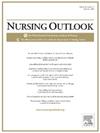Navigating artificial intelligence in nursing: An ethical exploration of benefits, risks, and educational shifts
IF 3.7
2区 医学
Q1 NURSING
引用次数: 0
Abstract
A significant challenge of generative artificial intelligence (AI) is the gap between technological advancements and policies to guide their ethical use. The integration of AI in all aspects of nursing is poised to revolutionize the delivery of nursing care to patients. As such, nursing practice and educational programs will be required to adapt to these advancing technologies while maintaining the core tenets and ethical values inherent in the profession. Schools, colleges, and universities will be called upon to act to safeguard the value of education and the sanctity of the nursing profession Ultimately, it will be the responsibility of nurses to make sure technological advances, including AI, do not compromise learning or the human interactions and relationships that are essential to providing patient-centered care. The purpose of this article is to explore the ethical implications for the nursing profession of these advances as currently known and understood.
在护理中导航人工智能:利益、风险和教育转变的伦理探索
生成式人工智能(AI)的一个重大挑战是技术进步与指导其道德使用的政策之间的差距。人工智能在护理各个方面的整合将彻底改变对患者的护理服务。因此,护理实践和教育计划将需要适应这些先进的技术,同时保持专业固有的核心原则和道德价值观。学校、学院和大学将被要求采取行动,维护教育的价值和护理职业的神圣性。最终,护士有责任确保包括人工智能在内的技术进步不会损害学习或人际互动和关系,而这些对于提供以患者为中心的护理至关重要。本文的目的是探讨目前已知和理解的这些进步对护理专业的伦理影响。
本文章由计算机程序翻译,如有差异,请以英文原文为准。
求助全文
约1分钟内获得全文
求助全文
来源期刊

Nursing Outlook
医学-护理
CiteScore
6.20
自引率
7.00%
发文量
109
审稿时长
25 days
期刊介绍:
Nursing Outlook, a bimonthly journal, provides innovative ideas for nursing leaders through peer-reviewed articles and timely reports. Each issue examines current issues and trends in nursing practice, education, and research, offering progressive solutions to the challenges facing the profession. Nursing Outlook is the official journal of the American Academy of Nursing and the Council for the Advancement of Nursing Science and supports their mission to serve the public and the nursing profession by advancing health policy and practice through the generation, synthesis, and dissemination of nursing knowledge. The journal is included in MEDLINE, CINAHL and the Journal Citation Reports published by Clarivate Analytics.
 求助内容:
求助内容: 应助结果提醒方式:
应助结果提醒方式:


